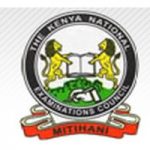These are the best environment related courses to study in Kenya
- Quantity Surveying
Quantity surveyors manage and control financial aspects of the construction process and may also specialise in construction contract law, insurance and procurement. They work on behalf of contracting organisations or representatives of the client, aiming to maximise value and ensure that the project is completed within budget.
As quantity surveyors often act as project managers, you will learn how to select, manage and coordinate the resources needed for the completion of a construction project. You will be taught how use to computing resources to financially manage the development, construction and long-term operation of buildings.
This course is accredited by several professional institutions including the Royal Institution of Chartered Surveyors (RICS), the Chartered Institute of Building (CIOB) and the Chartered Institution of Civil Engineering Surveyors (ICES), ensuring that you will be educated to the highest industry standards.
In Kenya, Quantity Surveyors act as a link between construction managers and environmental specialists, therefore giving the advantage over other specialists in the environment sector.
The average salary of a quantity surveyor in Kenya stands at Ksh 105,000.
Various universities offer Quantity Surveying course in Kenya, which include Moi University, JKUAT, UoN and Egerton University. Technical University of Kenya also offers the course at diploma level.
We identified this course as the best among environment related courses because of many opportunities that exist in the job market. There are also numerous opportunities for those who start their own consulting firms.
- GIS and Remote Sensing
A geographic information system (GIS) is a computer-based tool for mapping and analyzing feature events on earth. GIS technology integrates common database operations, such as query and statistical analysis, with maps. GIS manages location-based information and provides tools for display and analysis of various statistics, including population characteristics, economic development opportunities, and vegetation types. GIS allows you to link databases and maps to create dynamic displays. Additionally, it provides tools to visualize, query, and overlay those databases in ways not possible with traditional spreadsheets. These abilities distinguish GIS from other information systems, and make it valuable to a wide range of public and private enterprises for explaining events, predicting outcomes, and planning strategies.
Remote sensing is the art and science of making measurements of the earth using sensors on airplanes or satellites. These sensors collect data in the form of images and provide specialized capabilities for manipulating, analyzing, and visualizing those images. Remote sensed imagery is integrated within a GIS.
In Kenya,this course is widely applicable by NGOs,the United Nations,Ministry of Environment,KWS,DRSRS and many other institutions whose roles touch on the environment.
Since GIS has few graduates, this is one of the best courses to pursue in Kenya,and if you wish to study the course, Technical University of Kenya,JKUAT and Kenyatta University are some of the institutions where you can get knowledge from.
A GIS Analyst in Kenya earns Ksh 90,000 to Ksh 350,000 per month.
- Sc. in Natural Resources Management
Natural Resources like water, soil, trees and air need to be conserved. In the modern world, where companies and individuals don’t care about the surrounding, there is a need for professionals to raise awareness about the importance of these resources. Those with academic papers that touch on natural resources stand the best chance of joining NGOs that champion for conservation of natural resources.
In Kenya, there are several NGOs that deal with conservation of natural resources, and they are desperate of employing B. Sc. in Natural Resources Management graduates.
- BSc Land Economics
Land Economics is devoted to the study of economic aspects of the entire spectrum of natural and environmental resources, emphasizing conceptual and/or empirical work with direct relevance for public policy. Founded in 1925 as the Journal of Land and Public Utility Economics, the emphasis remains with articles that address the determinants and consequences of economic activity on the value and use of land, or the contribution of natural and environmental resources to economic activity.
Since Land is a sensitive issue in Kenya, the country can’t afford to have professionals in this area.















